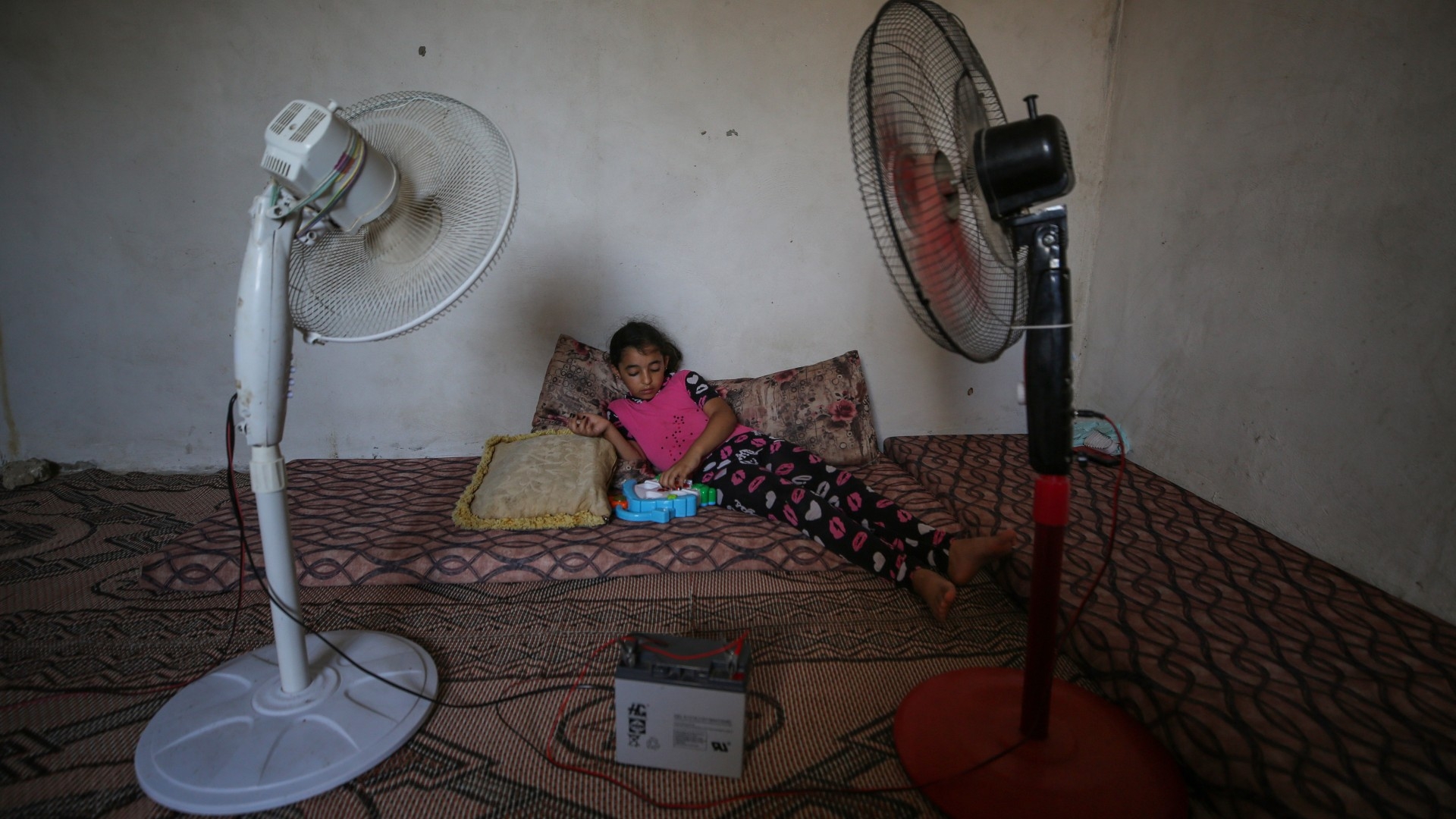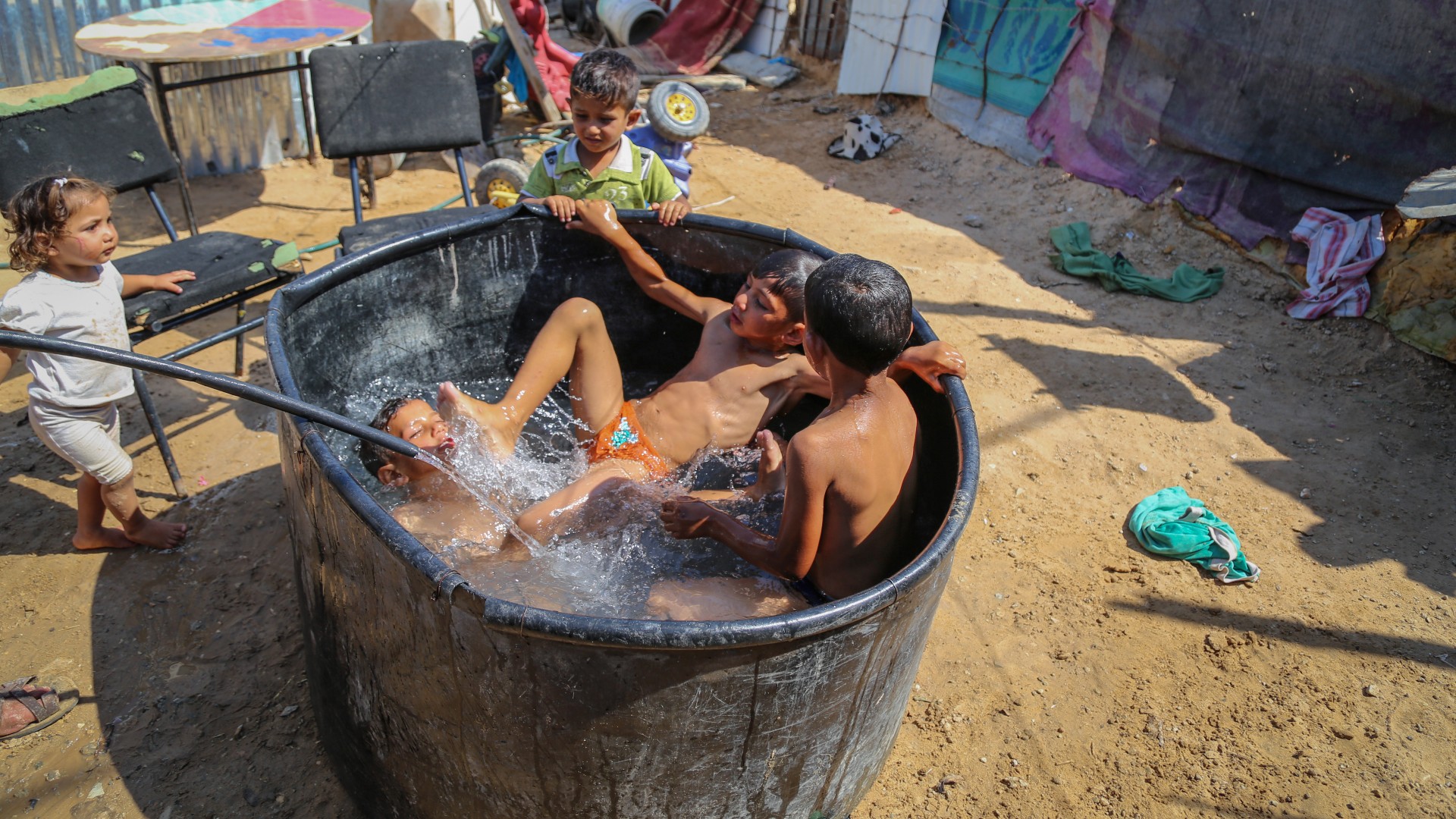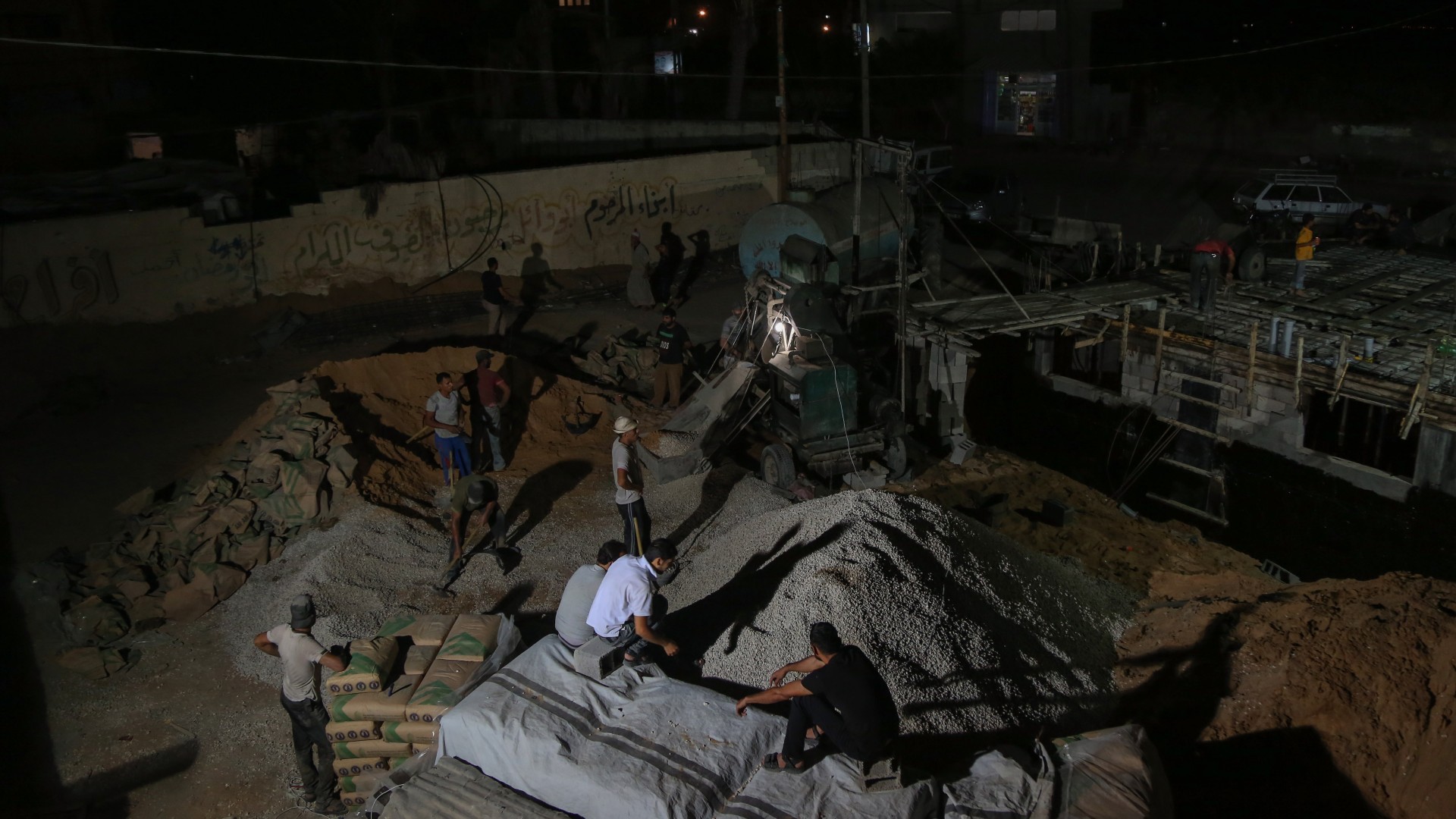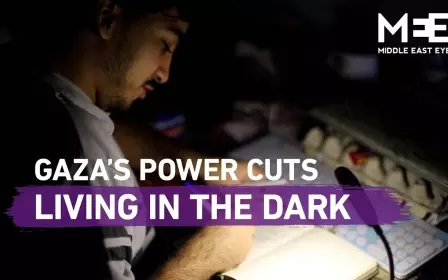Gaza's power cuts leave Palestinians sweltering amid rising temperatures

Palestinians in the besieged Gaza Strip have been left struggling to cope with rising temperatures, due to widespread electricity cuts.
The Middle East and North Africa have been experiencing scorching temperatures, with some countries registering record figures, prompting the World Meteorological Organization to issue a warning.
For more than two million people living in Gaza, which has been under an Israeli land, sea and air blockade for over 15 years, many are left dreading the coming months.
With most people only getting around 10 hours of electricity a day, keeping cool has been a challenge. The constant power cuts have also had a knock-on effect on businesses, medical facilities and the wider economy.
The temperatures, which have surpassed 38C, are starting to cause discontent and anger, as people struggle to complete daily tasks without proper electricity.
New MEE newsletter: Jerusalem Dispatch
Sign up to get the latest insights and analysis on Israel-Palestine, alongside Turkey Unpacked and other MEE newsletters
Kamal al-Ayi, manager of the Gaza-based Al-Ayi for Food Supplies, told Middle East Eye that the company is struggling to keep its machinery on.
“Our factories are in constant need of electricity, in order to keep the machines running and to keep products refrigerated so they don’t spoil in the heat,” he said.
The power cuts have also forced many companies and small businesses to take a financial hit, as they resort to generators.
“The generators need to stay on for the production line to continue, and it is costly - it requires a lot of fuel to keep them on for two or three days a week,” Ayi said.
Recently, Ayi has been forced to switch on the generators daily, and the additional costs have forced him to increase the price of goods, making many food products unaffordable for locals.
“It’s the end of the school year, so this is typically when our factories would be making a lot of sweets and chocolates. It should have been peak time for profit, but we have had to shift our schedules and work around when we have electricity in order to try and keep products affordable,” he said.
Small business owners have also borne the brunt of the electricity crisis. Ibrahim Omar, a coffee shop owner, says that since the start of summer he has incurred huge losses.
“I store fresh fruit in refrigerators, which only stay on for around 10 hours a day,” he said. “Less customers also come in, because we can’t turn on the air conditioning, fans or display football matches on the screens. We have suffered from the same issue for years, but it has not been resolved.”
Strain on resources
The intense heat, coupled with a lack of electricity, has put further strain on a region which already suffers from a lack of resources and many restrictions imposed by Israel.
Gaza currently has only one power plant to serve the entire enclave, with four of the generators out of service.
The only other source of power to the Strip is provided through Israel, via the Israel Electric Corporation. However, this only provides around 120 megawatts, barely covering the needs of the population - the area needs an estimated 500 megawatts of power per day to serve its residents, according to officials.
The electricity crisis is expected to worsen in the coming weeks and months, particularly as people increase their use of air conditioners, fans and refrigerators.
With no power for the majority of the day, many people are exposed to increased risks, such as food poisoning, a decreased quality of life and clinics unable to tend to patients. Water services have also come under severe strain.
Jamal Ismail, head of the Energy Authority in Gaza, says that they have struggled to keep up with demands.
“The energy deficit has reached around 60 percent, despite our attempts to ration and launch smart meters,” he told Middle East Eye.
“We invested the money saved into improving the quality of generators and we have had a grant from Qatar, which covers some expenses.”
‘Our day is hell’
For families spending more time at home during the summer holidays, the lack of electricity has taken a major toll on their living conditions.
Enas Rami, a housewife, says economic conditions and rising costs mean that many people are confined to their homes during the summer, and the high temperatures has made life unlivable.
'Our home now resembles a cemetery. The temperatures are high and it’s so humid'
- Enas Rami, housewife
“Our home now resembles a cemetery. The temperatures are high and it’s so humid,” she says.
“We only have electricity for around five hours a day - it’s on and off, which makes your day hell. The children are also suffering from heat rashes because we don’t have fans,” she added.
Some residents put the blame for their worsening living conditions on the government's mismanagement, and are calling for the issue to be addressed.
Omar says that power cuts have also proved to be dangerous.
“The evenings are pitch black; we sometimes use the flashlights on our phones to guide our way,” he says.
“There is also the risk of fatal car accidents because we can’t see at night. Children can’t sleep at night because of the heat, and I have a relative who needs life-saving machinery that relies on electricity to stay alive. He is forced to pay very high costs to have the generators on all day.”
Mental health toll
With no space to cool off, and a rise in unemployment as well as a higher cost of living, many are feeling the pressure.
Uday Obaid, a recent university graduate, says the situation is taking a toll on his mental health, and he is left with nothing much to do.
“After I graduated from university, I stayed home because there were no job opportunities. I would spend most of my time at the computer, playing games and watching films,” he told MEE.
“But now that the electricity crisis has worsened, I spend most of my days sleeping on the roof of the house just to feel a cool breeze. The house is unbearable without electricity.”
Even families who pay for private generators cannot afford to do so every day.
“The price of one kilowatt reaches eight times the original price coming from the electricity company,” Obaid explained.
The high prices have caused anger, directed towards electricity distribution companies, who people say have remained "complicit" while people are forced to pay extortionate prices for electricity through generators.
The anger has spilled online, with dozens of people taking to social media sites to express their frustration and demand for action.
Using the hashtag "we want electricity" in Arabic, people are voicing their concerns and venting their frustrations over what they say has been a recurring issue for over a decade.
Others are posting images of their daily struggles in the heat without electricity, and are calling for local protests to raise awareness of the situation.
Middle East Eye delivers independent and unrivalled coverage and analysis of the Middle East, North Africa and beyond. To learn more about republishing this content and the associated fees, please fill out this form. More about MEE can be found here.






